The hill shepherd: ‘I’m not sure where the shepherds of the future will come from’
Graham Oliver is proud of the profession handed to him by his grandfathers but with his children choosing different career paths, he doubts the future of shepherding. Tessa Waugh reports.
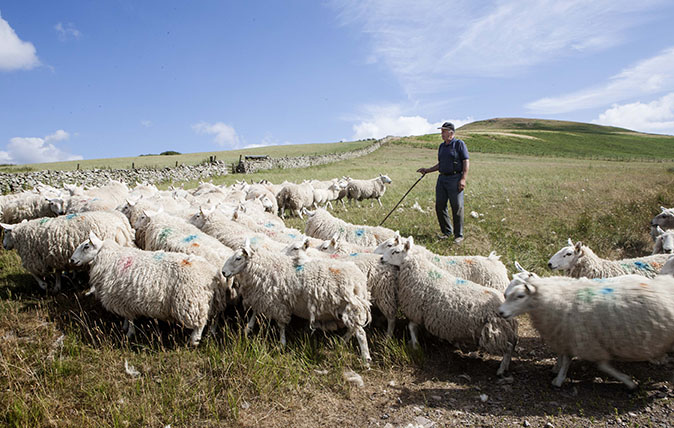

Graham Oliver hails from a respected Northumbrian shepherding family – both his grandfathers and three of his uncles were shepherds, plus his brother is one, too. ‘I was born at a time when shepherds’ sons became shepherds and farmer’s sons were guaranteed to farm,’ he observes with a smile. ‘Dad drove and Mum didn’t, so if we weren’t on a bike, we were in among the sheep. Everything at home was sheep-orientated and we began helping out as soon as we could.’
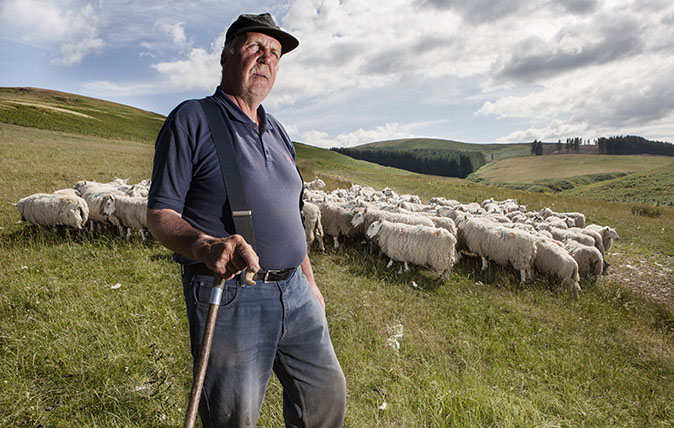
Indeed, one of Mr Oliver’s earliest memories involves one of the flock. ‘Dad had an old show ewe that we called the knocker, because she’d chase Stuart and me around the shed when we were dressing sheep [preparing them for shows or the sale ring],’ he recalls.
Having spent his life working on farms in the Borders, Mr Oliver is currently based on a farm near Wooler in the Cheviots. After 40 years in the job, he’s seen huge changes, the main one being that far fewer people are now involved in shepherding. ‘Thirty or so years ago, three men took care of the ground I look after now. Each man had 400 to 500 sheep and he’d walk around them. Now, we have quad bikes and one man looks after 1,500.
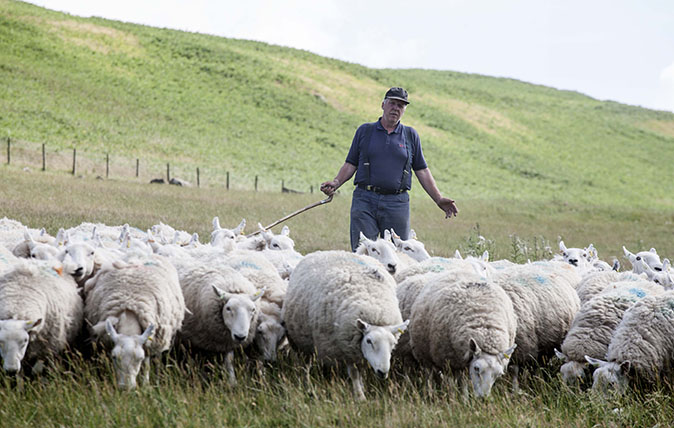
‘Previous generations had nothing on the medicine side – my grandfather used to talk about dosing hogs (year-old sheep) with diluted pig muck, but I don’t think sheep are healthier now, or bigger.’
Mr Oliver feels that the future of his profession is uncertain and, indeed, his three children have taken different career paths, although they enjoy helping their father when they can. ‘In the past, family reputation got us jobs, but there aren’tas many following on,’ he notes. ‘I’m not sure where the shepherds of the future will come from.’
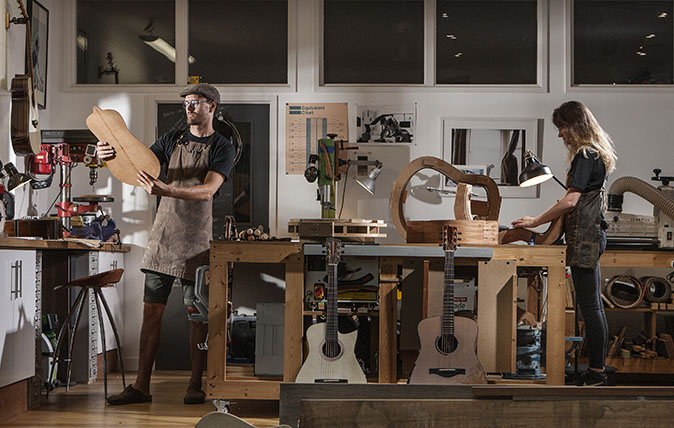
The luthier: 'You don’t know if you’ve been successful until you put the strings on. That’s the moment when it comes alive'
Tom Sands brought the lessons he learnt from the California king of guitar-making back to Britain, where he makes stunning,
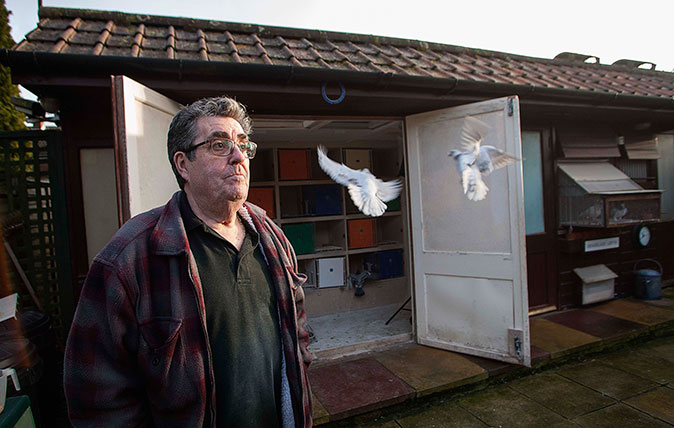
Credit: ©Richard Cannon/Country Life Picture Library
Sign up for the Country Life Newsletter
Exquisite houses, the beauty of Nature, and how to get the most from your life, straight to your inbox.
The Pigeon Fancier: 'I set up a deckchair in the garden and wait for them to come back. That’s the most exciting part.'
This week’s Living National Treasure is Colin Hill, a pigeon fancier whose birds regularly race from the tip of Scotland
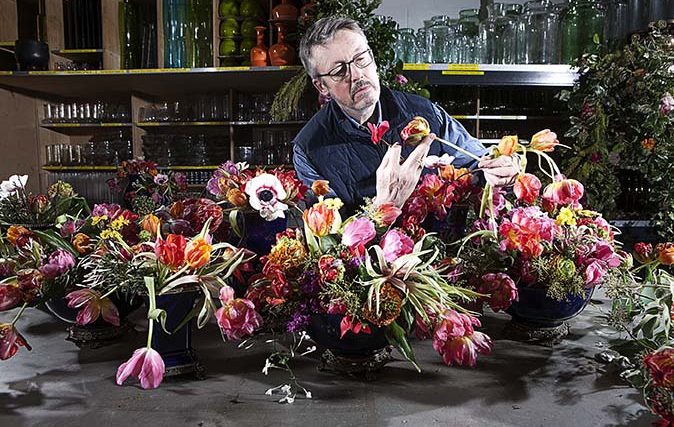
The Florist: 'What I do is like good cooking – if you have beautiful ingredients, you can’t go wrong'
This week's Living National Treasure is royal florist Shane Connolly – and while he might be based in Britain, he's
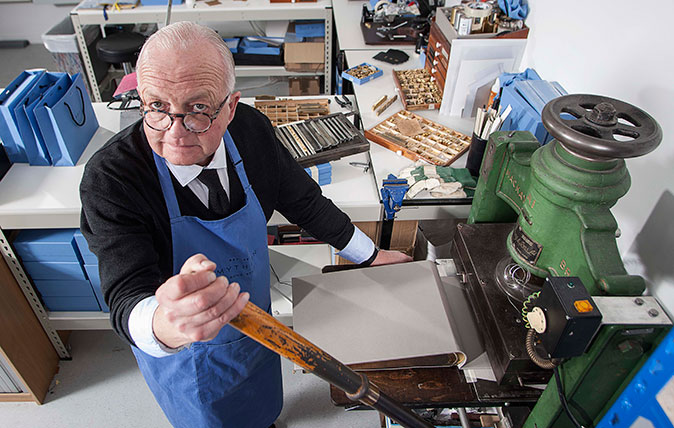
The gold stamper: ‘The younger generation is very appreciative of artisan work – they’re the ones driving the trend’
This week's Living National Treasure is John Timms, the man who leads the team that stamps gold lettering into thousands

The neon sign maker: 'Piccadilly Circus was our answer to Vegas – now it's all pixellated screens'
This week's Living National Treasure is Marcus Bracey, the man behind the neon signs that light up our cities. He
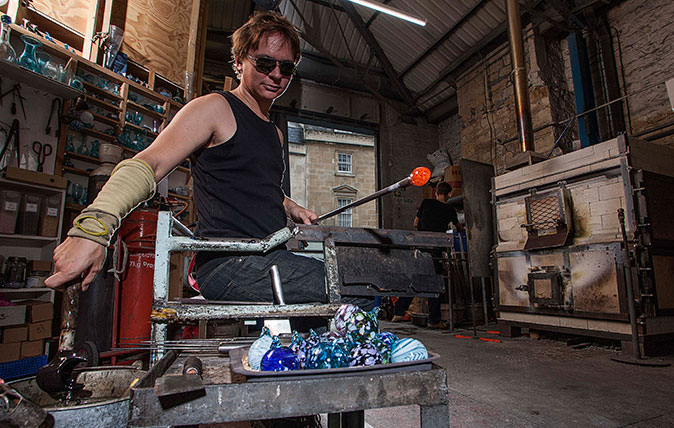
Credit: Living National Treasure: The Glassblower - ©Country Life/Richard Cannon
The Glassblower: 'When something goes wrong you can't fix it – you just sling in into the bosh bucket and start again'
Ian Shearman's team of glassblowers are still making glass using a technique that's 2,000 years old. Mary Miers found out
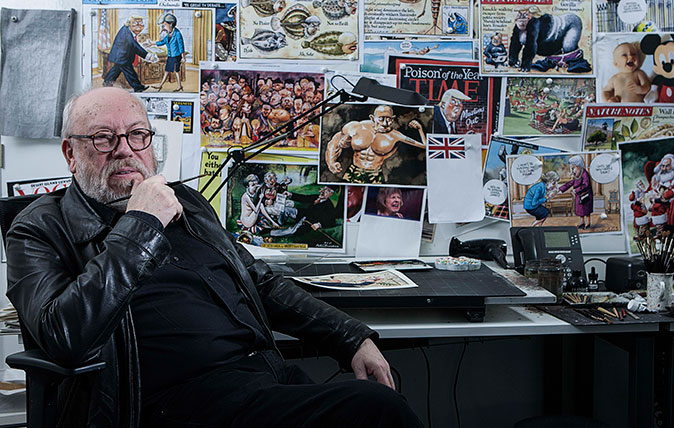
The political cartoonist: 'Politicians hate how I depict them, but they'd hate it even more if I ignored them'
Peter Brookes, political cartoonist at The Times, is a savage commentator and the spiritual successor to the likes of Gillray
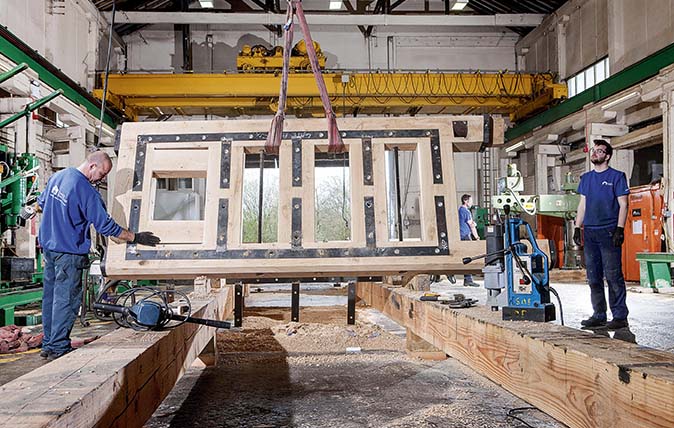
Credit: Richard Cannon
The lock-gate maker: ‘Maintaining them can be a bit like painting the Forth Bridge’
Tessa Waugh meets Steve Brunt, a workshop supervisor for the Canal and River Trust, which is dedicated to protecting and
Country Life is unlike any other magazine: the only glossy weekly on the newsstand and the only magazine that has been guest-edited by HRH The King not once, but twice. It is a celebration of modern rural life and all its diverse joys and pleasures — that was first published in Queen Victoria's Diamond Jubilee year. Our eclectic mixture of witty and informative content — from the most up-to-date property news and commentary and a coveted glimpse inside some of the UK's best houses and gardens, to gardening, the arts and interior design, written by experts in their field — still cannot be found in print or online, anywhere else.
-
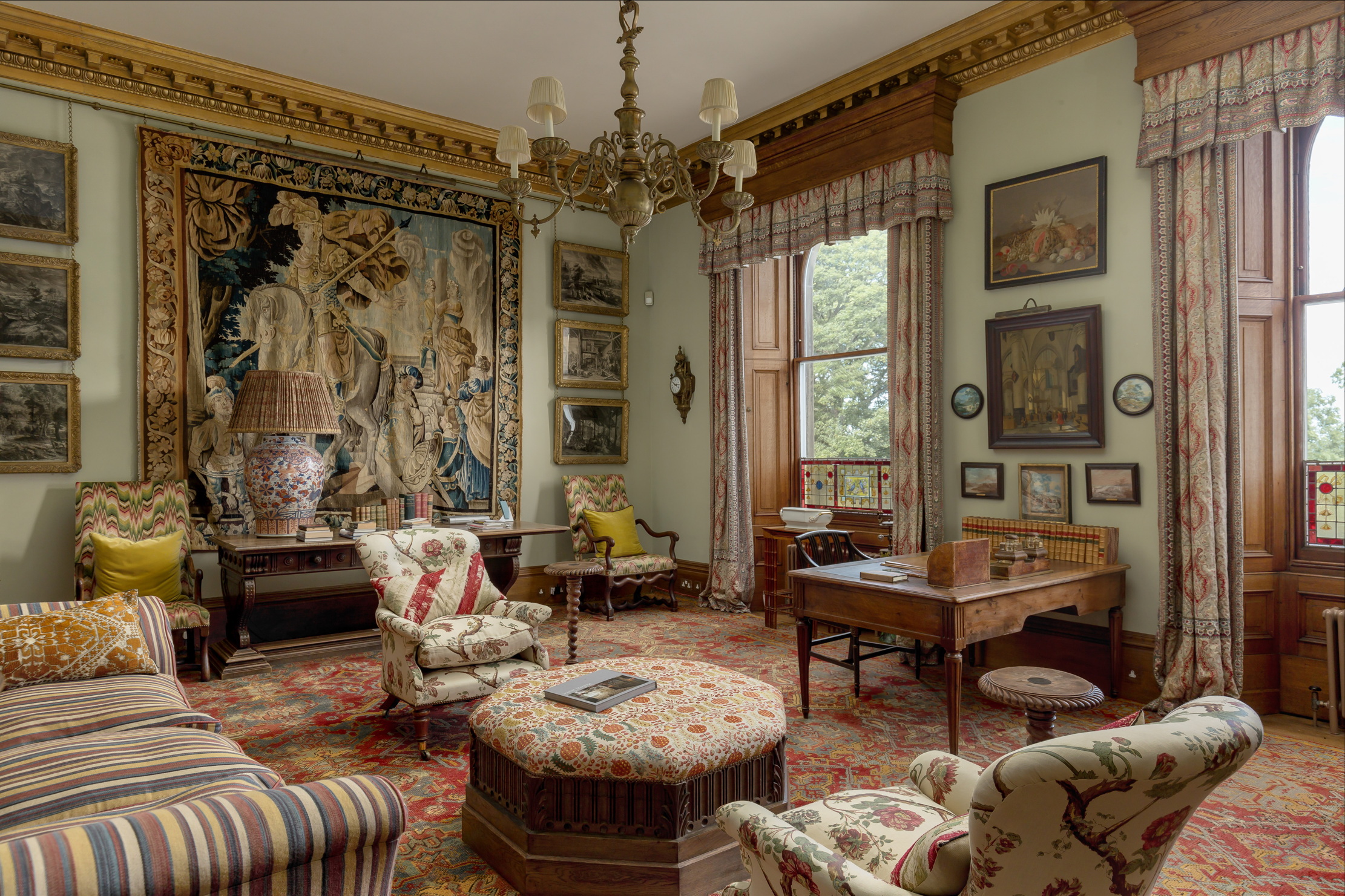 The finest interiors in Edinburgh? A seven-bedroom townhouse furnished by Robert Kime comes to market
The finest interiors in Edinburgh? A seven-bedroom townhouse furnished by Robert Kime comes to marketSituated on one of the New Town's grandest terraces, this four-storey property is a collector's dream.
By James Fisher Published
-
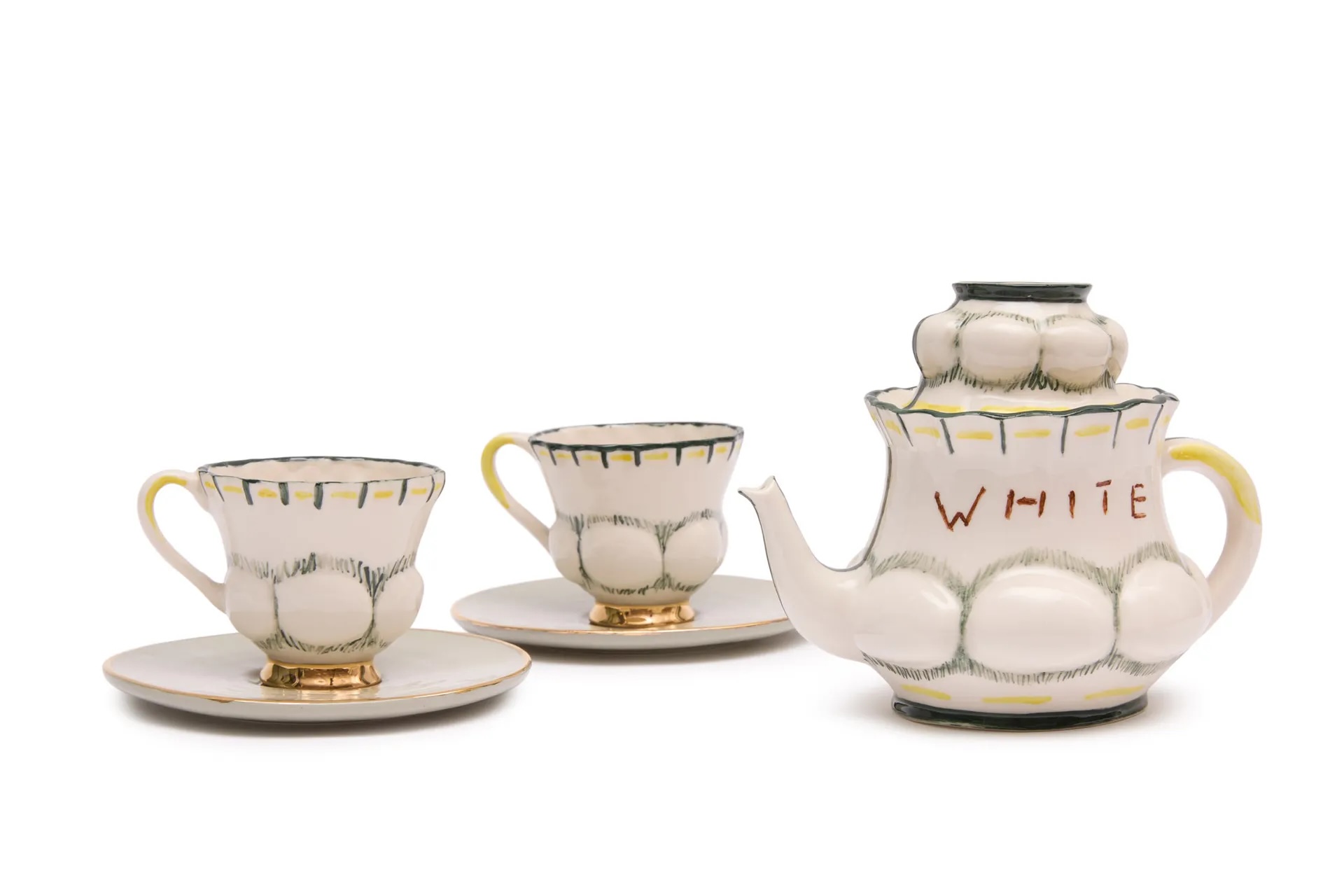 Why LOEWE decided to reimagine the teapot, 25 great designs over
Why LOEWE decided to reimagine the teapot, 25 great designs overLoewe has commissioned 25 world-leading artists to design a teapot, in time for Salone del Mobile.
By Amie Elizabeth White Published
-
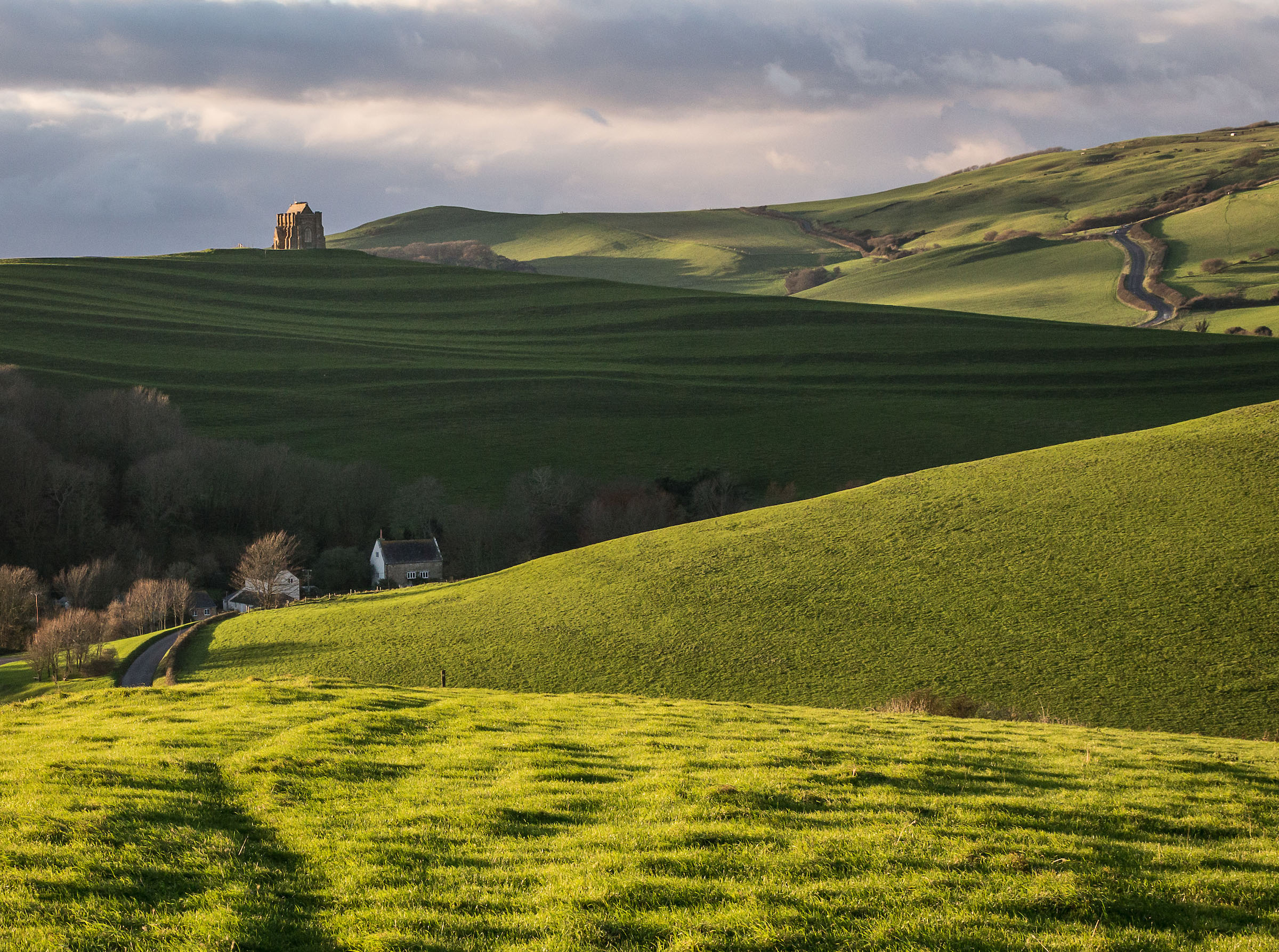 The photographer walking 7,000 miles around the coast of Britain: 'After 450 days of walking I've not been bored once'
The photographer walking 7,000 miles around the coast of Britain: 'After 450 days of walking I've not been bored once'Quintin Lake has always loved walking, ever since trekking from Lands End to John O'Groats as a teenager. But his five-year epic journey around the coast of Britain has taken his love for getting out and about to a new level — as well as his love for our beautiful island.
By James Fisher Published
-
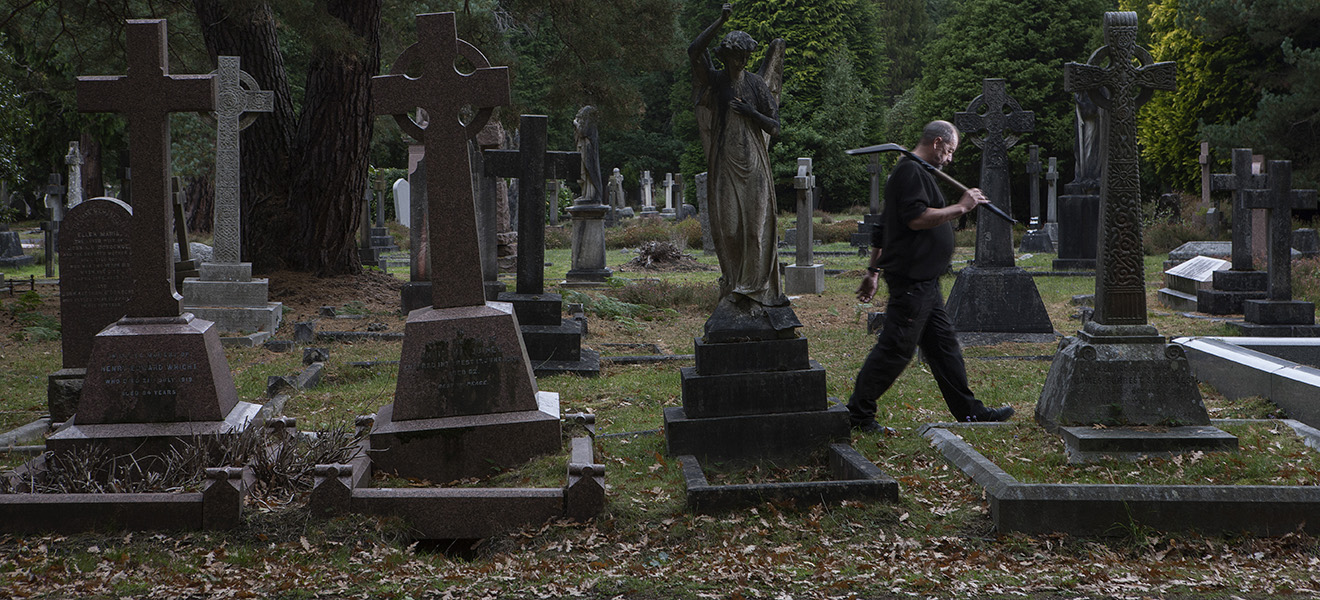 The gravedigger: Digging graves by hand, putting aside emotions and his hopes for his own final resting place
The gravedigger: Digging graves by hand, putting aside emotions and his hopes for his own final resting placeAlan Munnery has spent the last 20 years working as a gravedigger at one of Europe's biggest cemeteries, which happens to be just outside Woking. He spoke to Tessa Waugh; portraits by Richard Cannon.
By Tessa Waugh Published
-
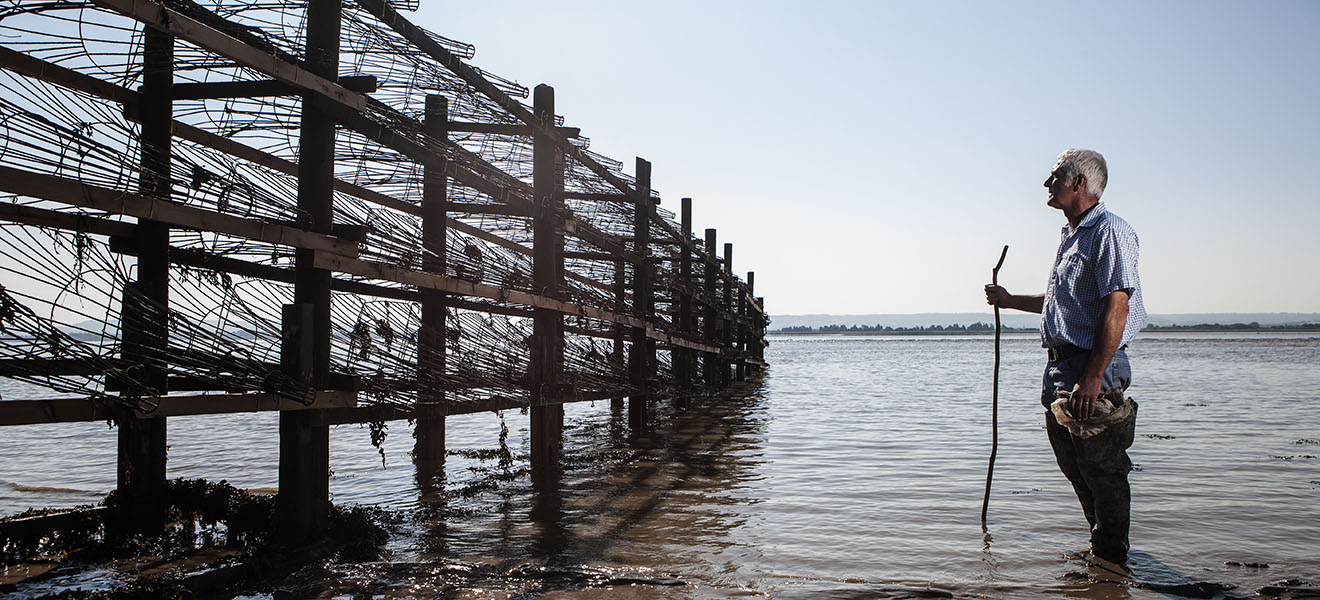 The putcher fisherman: Flying the flag for a dying way of life
The putcher fisherman: Flying the flag for a dying way of lifeChris Cadogan, as the only remaining fisherman to practice this medieval method on the Severn, laments the decline of the industry he has dedicated his life to preserving. Tessa Waugh reports, photographs by Richard Cannon.
By Country Life Published
-
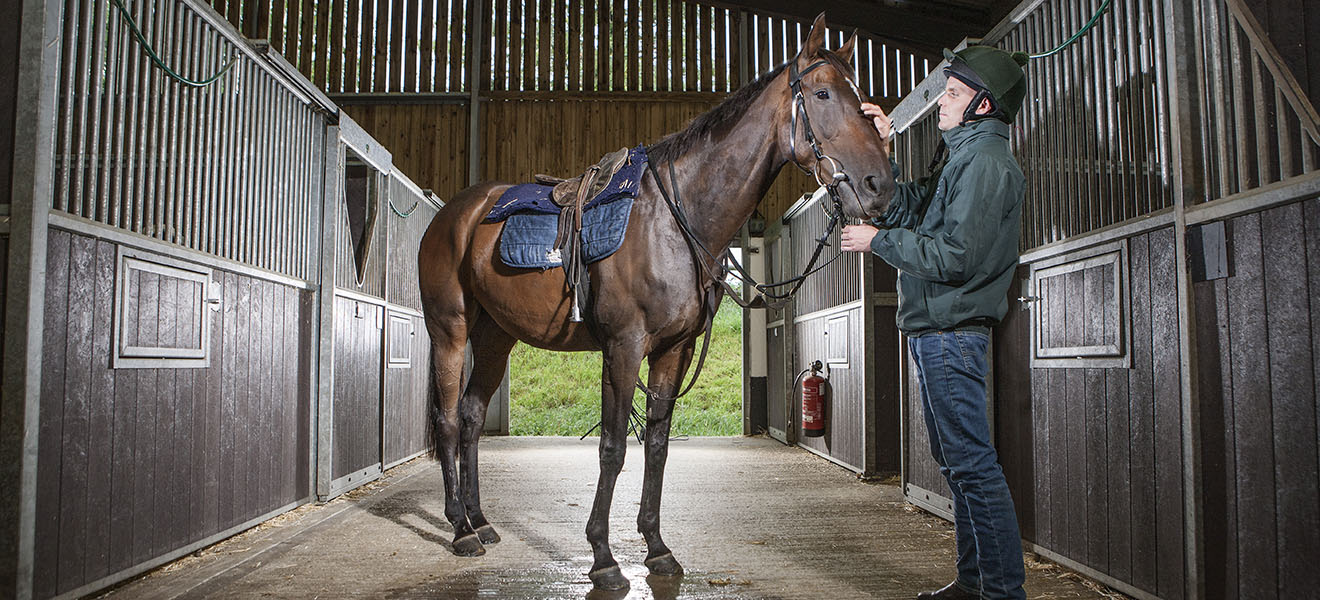 The racing-yard manager: ‘The hours sometimes get on top of you, but when you get the winners, it’s all worthwhile’
The racing-yard manager: ‘The hours sometimes get on top of you, but when you get the winners, it’s all worthwhile’A cabinetmarker by trade, Richard Leadley followed his love of horses to his current profession. Tessa Waugh reports, portrait by Richard Cannon.
By Country Life Published
-
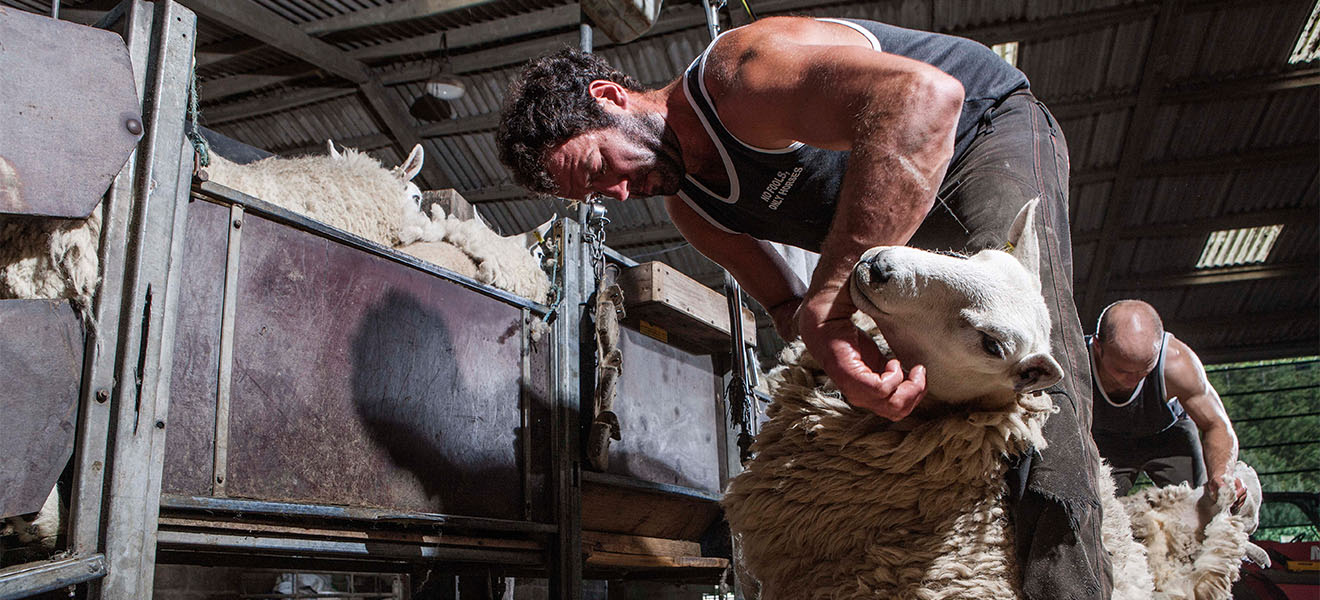 The sheep-shearer: 'If you tell people what you do, they often don’t know what it involves'
The sheep-shearer: 'If you tell people what you do, they often don’t know what it involves'Sheep-shearers are a dying breed, but Ashley Story relishes the back-breaking work. He spoke to Tessa Waugh; portraits by Richard Cannon.
By Country Life Published
-
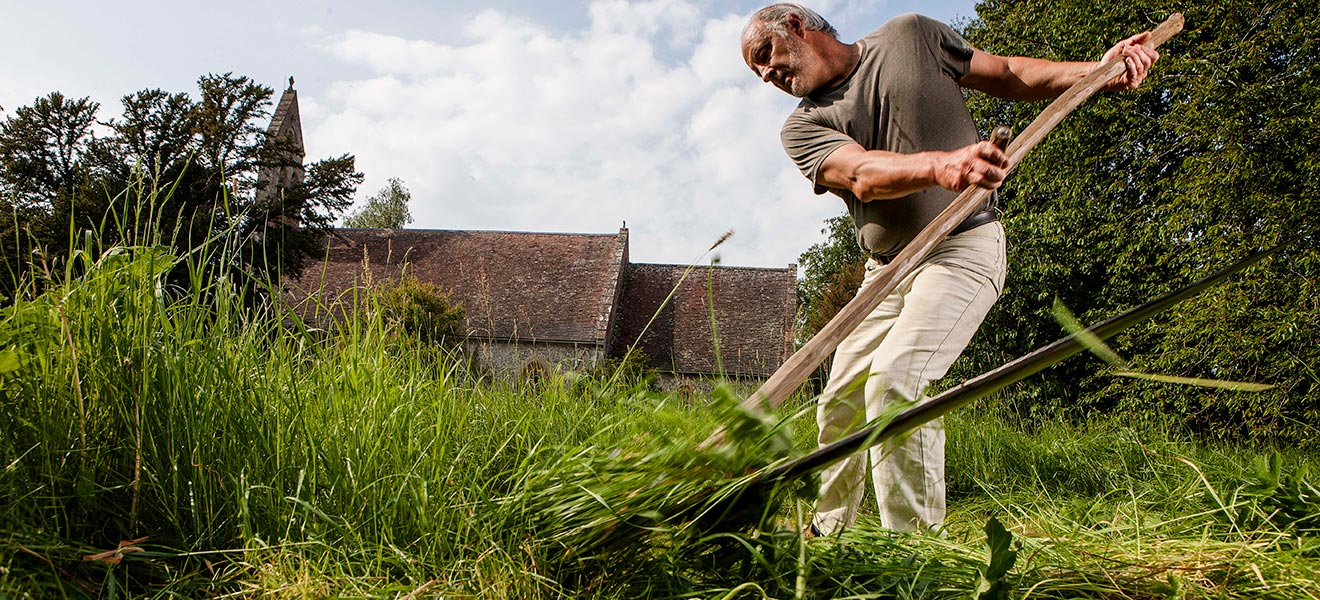 The Scyther: ‘We were up in arms about Poldark – his swing was all wrong’
The Scyther: ‘We were up in arms about Poldark – his swing was all wrong’Scything was almost forgotten until Aidan Turner’s turn in Poldark, but Nigel Adams says there’s still a place for it. He spoke to Tessa Waugh; portraits by Richard Cannon.
By Country Life Published
-
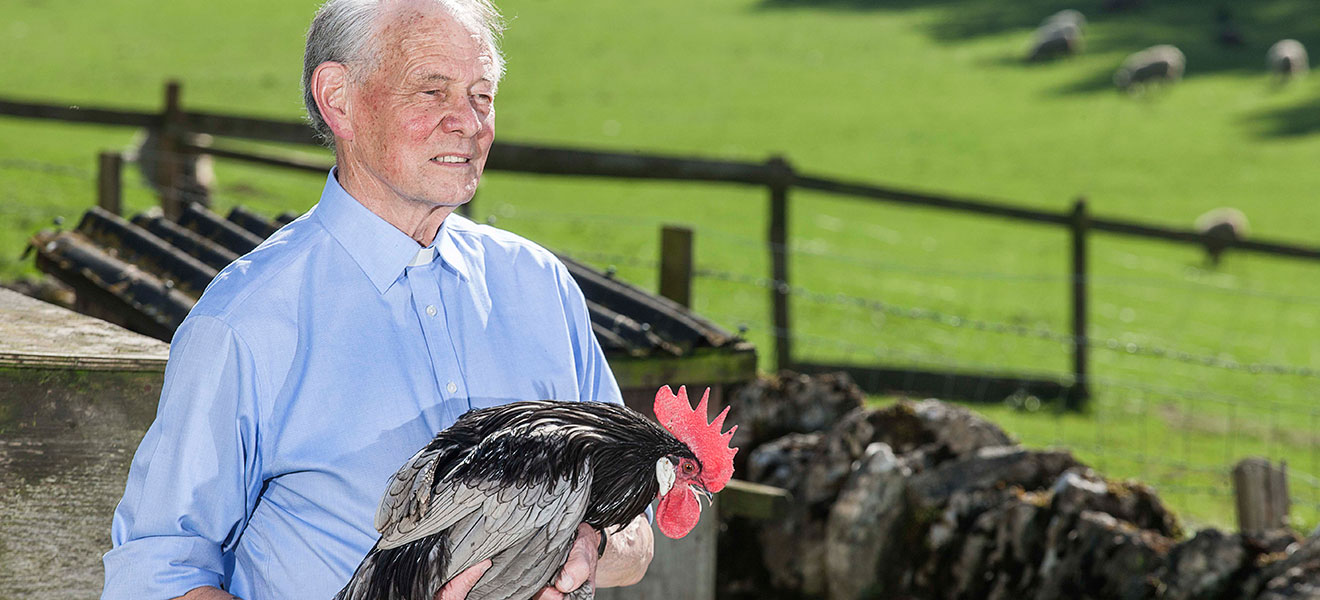 The rare-chicken breeder: 'Watching hens having a dust bath is a delight'
The rare-chicken breeder: 'Watching hens having a dust bath is a delight'Andrew and Sue Bowden have been saving rare chicken breeds for 40 years. They spoke to Tessa Waugh; portraits by Richard Cannon.
By Country Life Published
-
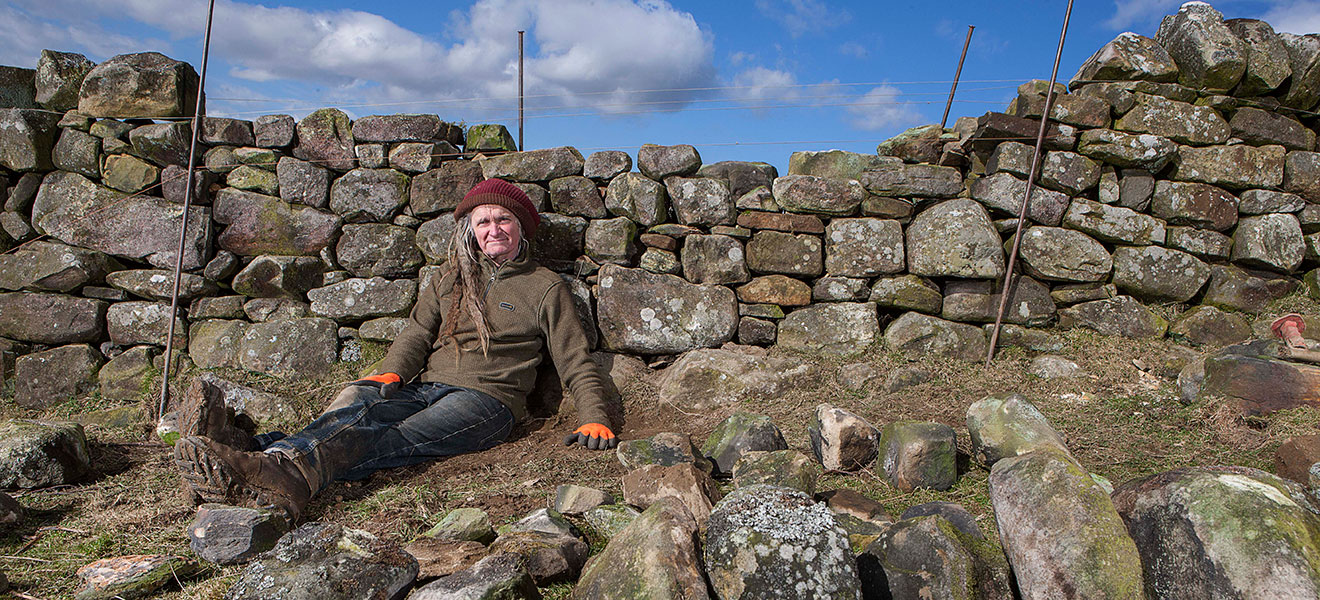 The dry stone wall builder: 'Every metre of wall contains a ton of stone. You really feel it after a hard week.'
The dry stone wall builder: 'Every metre of wall contains a ton of stone. You really feel it after a hard week.'This week's Living National Treasure is Anthony Gorman, a man who has spent his life building beautiful walls by hand across Northumbria. He spoke to Tessa Waugh; portraits by Richard Cannon.
By Country Life Published